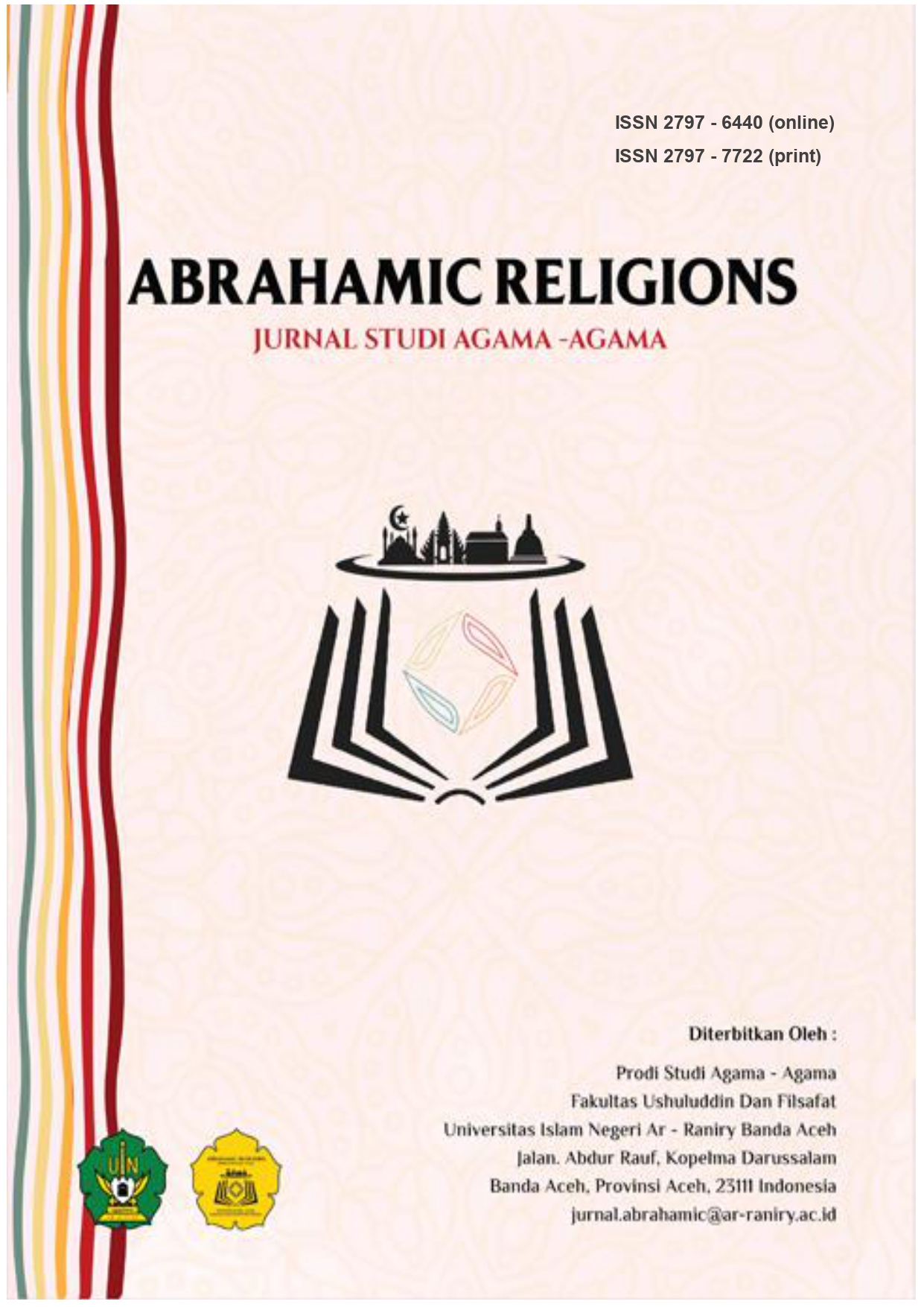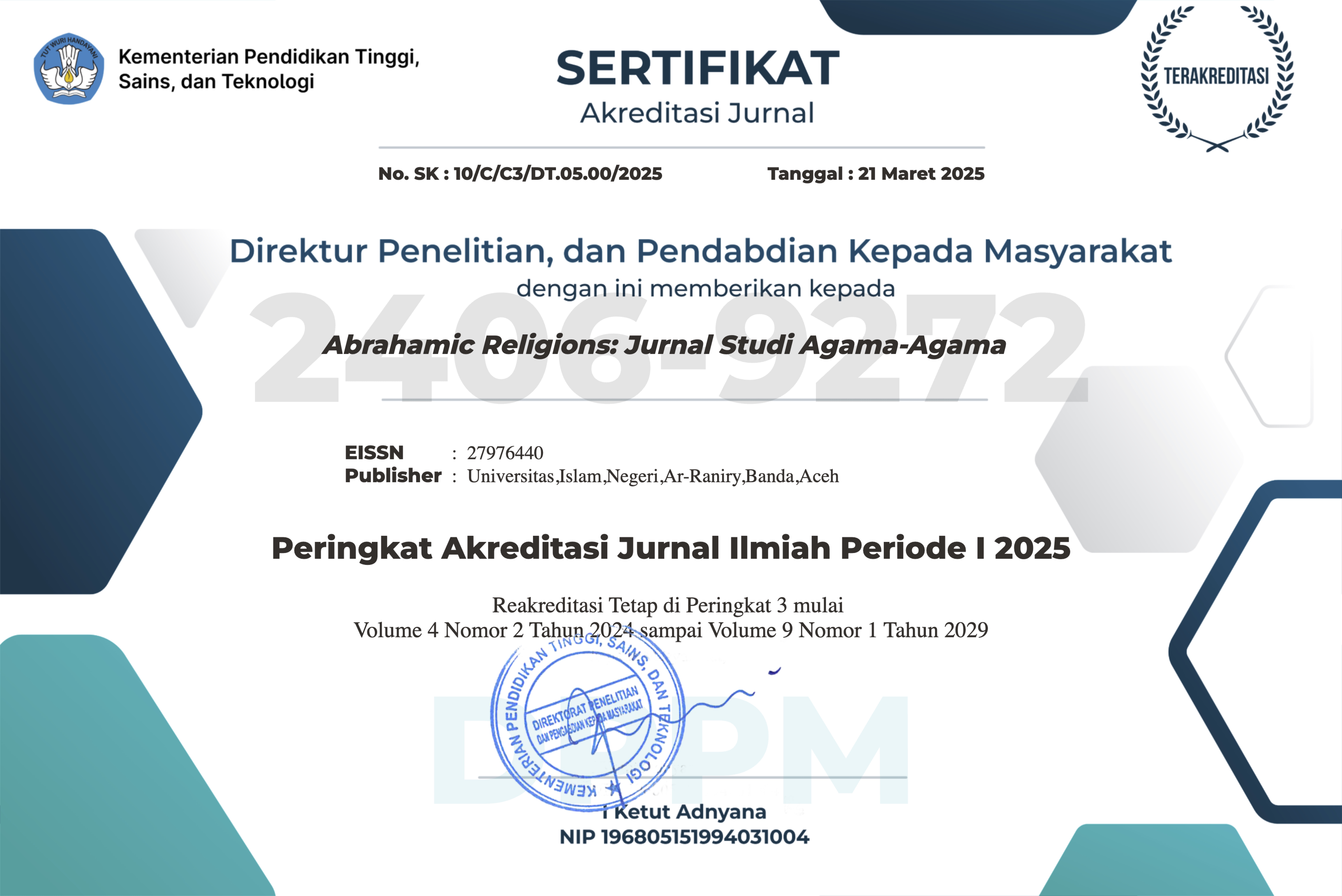Modern Challenges in Islamic Practice: The Role of Morality and Ethics
DOI:
https://doi.org/10.22373/arj.v4i1.23661Keywords:
Islamic Thought, Ijtihad, Modernity, Ethics in IslamAbstract
This study examines the need and processes for reform in Islamic thought amid contemporary challenges. Despite the eternal nature of Sharia, acknowledged by Allah, the conditions of modernity necessitate continuous ijtihad—dynamic interpretation—to preserve the relevance of Islamic teachings. This research employs a textual historical approach, focusing on the discourse of prominent scholars to understand the evolving nature of morality and ethics within Islamic traditions. The study underscores the critical role of ijtihad in addressing the ethical dilemmas posed by modern social changes, technological advancements, and the influence of authoritative religious interpretations. Therefore, an adaptive ethical framework that integrates both individual and collective moral values is essential to ensure that Islamic thought remains relevant and responsive to the complexities of a global society. This study advocates for a balanced approach to religious practices that align with contemporary moral and ethical standards, thereby supporting the sustainability and purity of Islamic teachings in a modern context.
References
Adnan Muhammad Amamah. (n.d.). Tajdid fi al-Fikr al-Islamy (Rasa’il al-Jami’ah). Dar Ibnal-Jauzy.
Bakker, A. (1984). Metode-Metode Filsafat. Ghalia Indonesia.
Bakry, M. M. (2019). Tajdid dan Taqlid. AL ASAS, 3(2).
Daniati, N. S., Priyatno, A., & Muhdiyati, I. (2024). Pengaruh Media Sosial TikTok Terhadap Perilaku Moralitas Pada Era Digitalisasi di SDN Caringin 02. Karimah Tauhid, 3(4), 4091–4106. https://doi.org/10.30997/karimahtauhid.v3i4.12812
Fazal, K., & Saleh, J. (2022). Ummatan Wasaţan dalam Pancasila Perspektif Tafsir M. Quraish Shihab. TAFSE: Journal of Qur’anic Studies, 7(1), 77. https://doi.org/10.22373/tafse.v7i1.13197
Frazer, E. B. T. and J. G. (1996). “Animism and Magic”, dalam Daniel L. Pals, Seven Theories of Religion. Oxford University Press.
Jenny Teichman. (1998). Terj, Etika Sosial. Kanismis.
Mawardi, M. (2022). Moderasi Beragama dalam Agama Konghuchu. Abrahamic Religions: Jurnal Studi Agama-Agama, 2(2). https://doi.org/10.22373/arj.v2i2.14585
Miswardi Miswardi, Nasfi Nasfi, A. A. (2021). Etika, Moralitas dan Penegak Hukum. Menara Ilmu : Jurnal Penelitian Dan Kajian Ilmiah, 15(2). https://doi.org/10.31869/mi.v15i2.2425
Nashir Abdul Karim al-Aql. (n.d.). “Al-Taqlid wa al-Tab’iyat wa Atsaruhuma fi Kiyani al-Ummat al- Islamiyah”, Disertasi. Universitas al-Imam Abu Su’ud al-Islamiyah.
Poespoprodjo. (n.d.). Filsafat Moral, Kesusilaan Teori dan Praktek. Pustaka Grafika.
Pratiwi, E., Negoro, T., & Haykal, H. (2022). Teori Utilitarianisme Jeremy Bentham: Tujuan Hukum Atau Metode Pengujian Produk Hukum? Jurnal Konstitusi, 19(2), 268. https://doi.org/10.31078/jk1922
Rambe, T., Mawardi, M., & Mayasari, S. (2023). Rumah Moderasi Beragama di PTKIN: Potret Kebijakan dan Strategi Mewujudkan Beragama Moderat di Perguruan Tinggi. Abrahamic Religions: Jurnal Studi Agama-Agama, 3(2), 214. https://doi.org/10.22373/arj.v3i2.19826
Robert N. Bellah. (2000). Beyond Belief Essei-essei tentang Agama di Dunia Modern. Paramdina.
Saifuddin Anwar. (2001). Metode Penelitian. Pustaka Pelajar Offset.
Santoso, J., Sarono, T. B., Sutrisno, S., & Putrawan, B. K. (2022). Moderasi Beragama di Indonesia: Kajian Tentang Toleransi dan Pluralitas di Indonesia. Jurnal Teologi Berita Hidup, 4(2), 324–338. https://doi.org/10.38189/jtbh.v4i2.167
Seven, D. L. P. (1966). Theory of Religion. Oxford University Press.
Sutrisno Hadi. (2002). Metodelogi Research. Andi Offset.
Suyatno. (2012). Nilai, Norma, Moral, Etika dan Pandangan Hidup Perlu dipahami oleh Setiap Warga Negara dalam Kehidupan Berbangsa dan Bernegara. PKn Progresif, 7(1).
Wahyu Ningsih. (2023). Implementasi Ijtihad dan Taqlid di Era Kontemporer. Jurnal Asy-Syukriyyah, 24(2), 152–171. https://doi.org/10.36769/asy.v24i2.406
Downloads
Published
Issue
Section
License
Authors who publish in this Journal agree to the following terms:
- Authors retain copyright and grant the journal right of first publication with the work simultaneously licensed under Attribution-ShareAlike 4.0 International (CC BY-SA 4.0) allows others to share the work with an acknowledgment of the work's authorship and initial publication in this journal.
- Authors are able to enter into separate, additional contractual arrangements for the non-exclusive distribution of the journal's published version of the work (e.g., post it to an institutional repository or publish it in a book), with an acknowledgment of its initial publication in this journal.
- Authors are permitted and encouraged to post their work online (e.g., in institutional repositories or on their website) prior to and during the submission process, as it can lead to productive exchanges, as well as earlier and greater citation of published work. (See The Effect of Open Acces)















